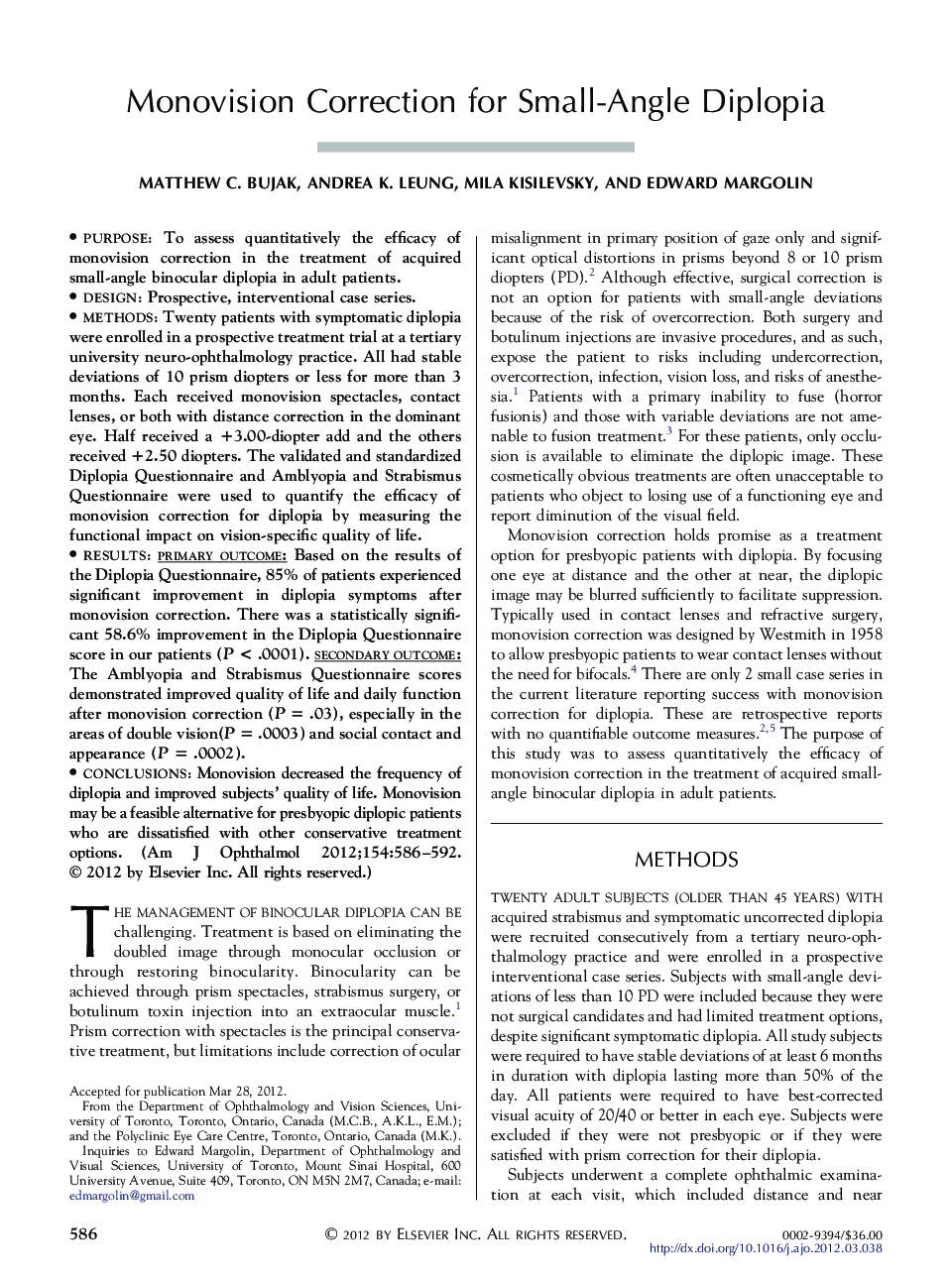| کد مقاله | کد نشریه | سال انتشار | مقاله انگلیسی | نسخه تمام متن |
|---|---|---|---|---|
| 6196073 | 1602157 | 2012 | 9 صفحه PDF | دانلود رایگان |

PurposeTo assess quantitatively the efficacy of monovision correction in the treatment of acquired small-angle binocular diplopia in adult patients.DesignProspective, interventional case series.MethodsTwenty patients with symptomatic diplopia were enrolled in a prospective treatment trial at a tertiary university neuro-ophthalmology practice. All had stable deviations of 10 prism diopters or less for more than 3 months. Each received monovision spectacles, contact lenses, or both with distance correction in the dominant eye. Half received a +3.00-diopter add and the others received +2.50 diopters. The validated and standardized Diplopia Questionnaire and Amblyopia and Strabismus Questionnaire were used to quantify the efficacy of monovision correction for diplopia by measuring the functional impact on vision-specific quality of life.Resultsprimary outcome: Based on the results of the Diplopia Questionnaire, 85% of patients experienced significant improvement in diplopia symptoms after monovision correction. There was a statistically significant 58.6% improvement in the Diplopia Questionnaire score in our patients (P < .0001). secondary outcome: The Amblyopia and Strabismus Questionnaire scores demonstrated improved quality of life and daily function after monovision correction (P = .03), especially in the areas of double vision(P = .0003) and social contact and appearance (P = .0002).ConclusionsMonovision decreased the frequency of diplopia and improved subjects' quality of life. Monovision may be a feasible alternative for presbyopic diplopic patients who are dissatisfied with other conservative treatment options.
Journal: American Journal of Ophthalmology - Volume 154, Issue 3, September 2012, Pages 586-592.e2